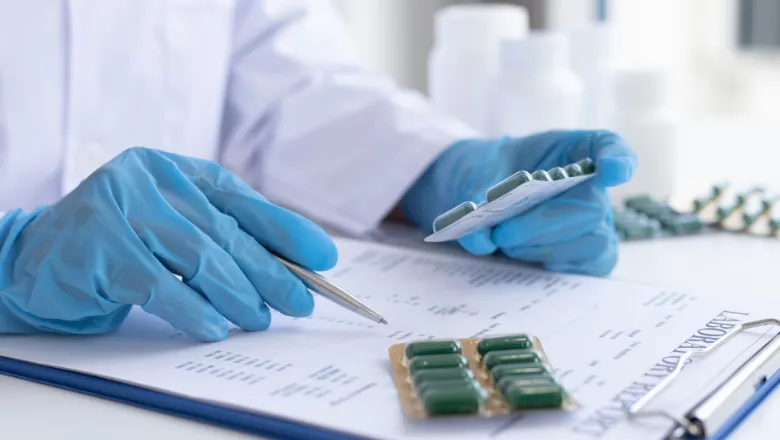This study builds upon our increasing understanding about how B cells and antibodies react to the presence of cancer, by identifying subsets of these cells and types of antibodies that can help predict and monitor patients who receive immunotherapy.
Professor Sophia Karagiannis, Professor of Translational Cancer Immunology and Immunotherapy at King’s and senior author on the paper.
10 June 2025
Immune markers in blood could predict toxicity and treatment response to immunotherapy in melanoma
New research identifies blood-based B cell and antibody signatures that could guide safer treatment for patients receiving immunotherapy.

Researchers at King’s College London have identified immune markers in the blood that could help predict which patients with melanoma are most likely to benefit from immunotherapy and which patients are at greater risk of experiencing serious immune-related side effects.
Immunotherapy has transformed the outlook for many cancer patients, including those with melanoma. However, for some, the treatment can trigger serious immune-related side effects that are severe enough to stop therapy altogether. Currently, doctors have no reliable way to predict in advance who will benefit from treatment and who is at risk of these harmful reactions.
The new study, led by Professor Sophia Karagiannis, tackles a major challenge in cancer treatment by identifying patterns in the blood that could predict side effects and response to therapy before patients start treatment. The findings were published in the Journal for ImmunoTherapy of Cancer.
Using a minimally invasive ‘liquid biopsy’ approach, the researchers analysed immune profiles of blood samples from 52 patients with advanced melanoma collected from Guy’s and St Thomas’ NHS Foundation Trust. Blood samples were analysed before patients received immunotherapy, as well as at two timepoints throughout their treatment.
In pre-treatment blood samples, the team found a pattern of specific B cells and antibodies circulating in the blood of patients who went on to receive treatment without experiencing toxic side effects.
B cells are a type of white blood cell that help protect the body by making antibodies, which target infections and abnormal cells like cancer. The team also found that some of these same B cell populations and antibodies changed after treatment, and some of these changes correlated with patients experiencing toxicity or responding positively to the treatment. Such markers could help clinicians detect early signs of toxicity or gauge how well a patient is responding, offering a route to more dynamic, responsive care.
“With further research, the immune markers identified could help to develop simple blood tests to understand how patients are likely to respond to immunotherapy before treatment begins. This would allow doctors to personalise care, closely monitor those at risk of side effects, and help more patients safely access potentially lifesaving treatments.”
Dr Zena Willsmore, Consultant Dermatologist at Guy’s and St Thomas’ NHS Foundation Trust, who undertook the work during her PhD at King’s, said:
Immunotherapy has revolutionised melanoma treatment. However, it remains a challenge that not all patients respond, and a significant proportion develop immune toxicity. There is a pressing need for tools to help stratify patients and allow clinicians to balance treatment efficacy versus toxicity, particularly as immunotherapy is increasingly being utilised in early-stage disease where the risk versus benefit to the patient can be hard to quantify.
Dr Zena Willsmore, Consultant Dermatologist at Guy’s and St Thomas’ NHS Foundation Trust
"This work points to immune signatures in easily accessible blood samples prior to treatment that show a signal for predicting both treatment response and serious side effects. With further research this holds potential for developing clinical markers for a tailored approach to patient care."
The study was funded by the Cancer Research UK City of London Centre, the British Skin Foundation, Guy’s & St Thomas’ Charity, and the King’s Health Partners Centre for Translational Medicine.
At the British Skin Foundation, we support research that helps improve how skin conditions are understood and treated. This study offers new insight into how we might make immunotherapy for melanoma safer and more effective in the future. We’re pleased to have helped make this work possible and look forward to seeing how it contributes to better care for patients.
Matthew Patey OBE, Chief Executive, British Skin Foundation


